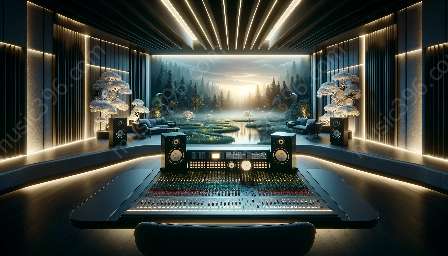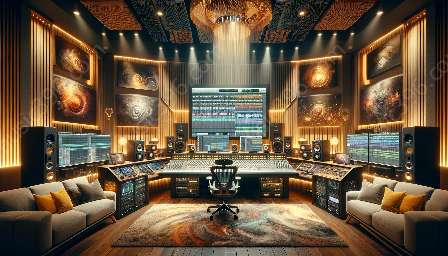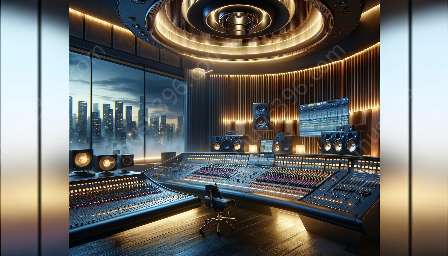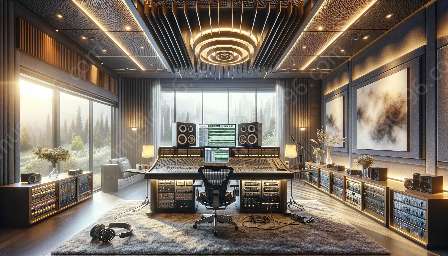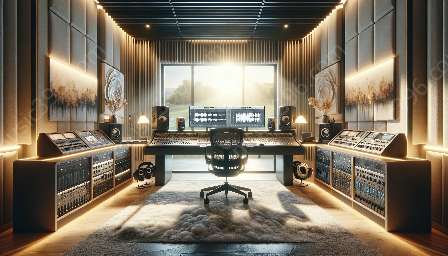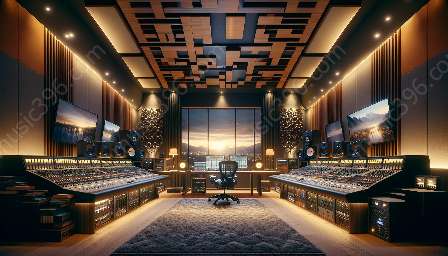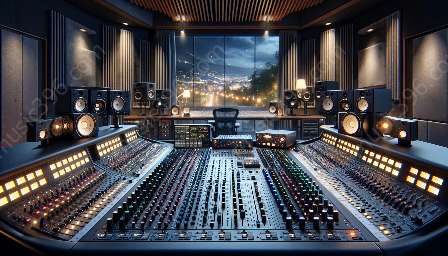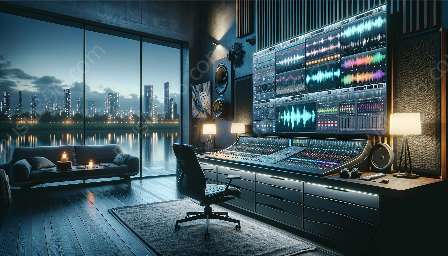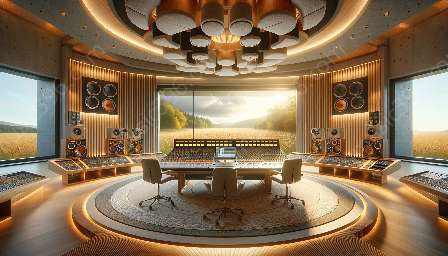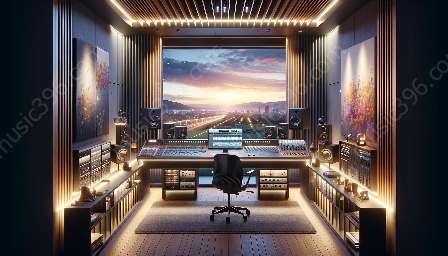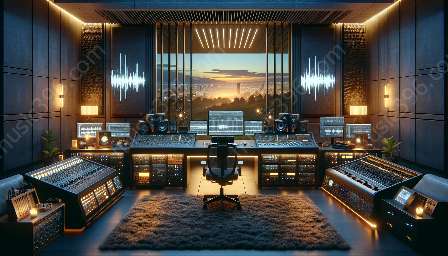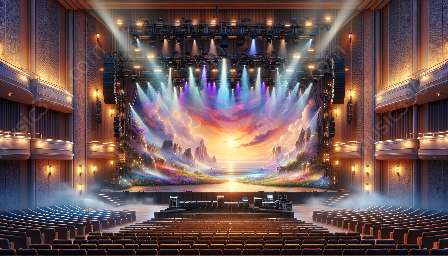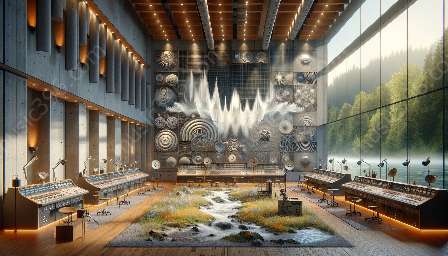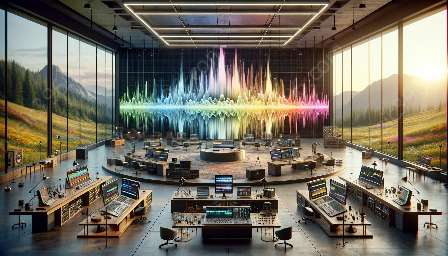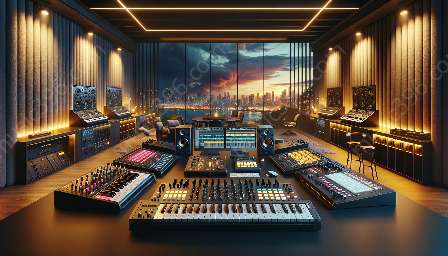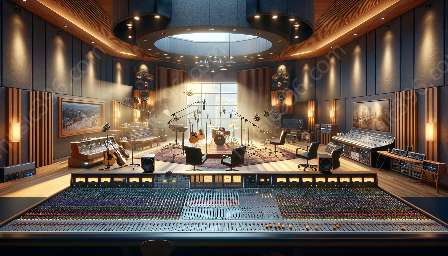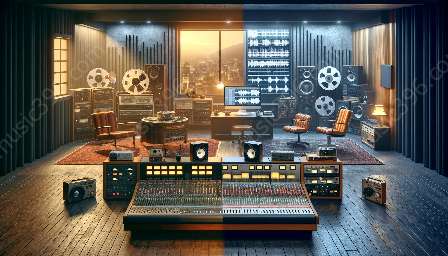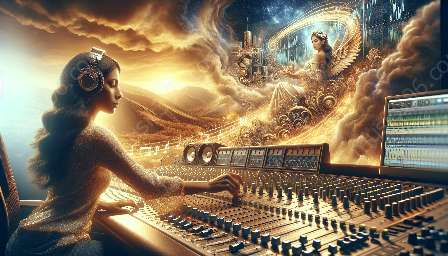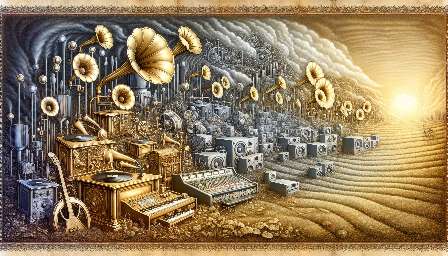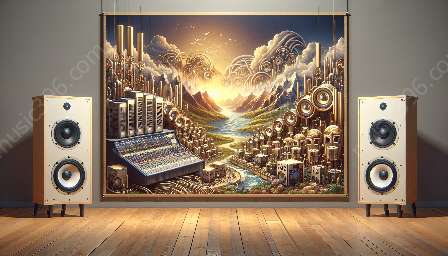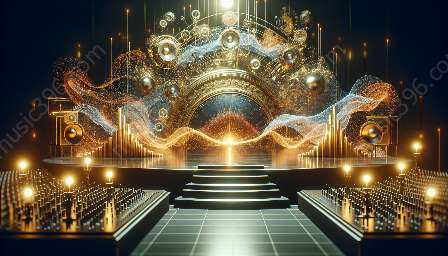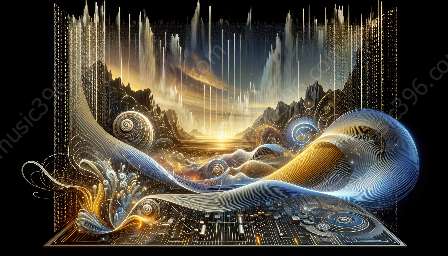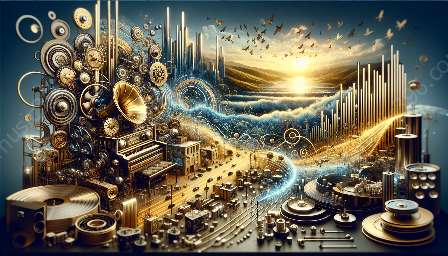Sound and music in film and television play crucial roles in shaping the audience's emotional and sensory experiences. The principles of sound engineering, including recording, mixing, and editing, differ significantly based on the genre of the production. Understanding how sound engineering varies between genres is essential to effectively convey the intended mood, atmosphere, and storytelling of a film or television show.
The Impact of Music and Sound on Film and Television
Before delving into the differences in sound engineering across genres, it's important to acknowledge the significant impact of music and sound on the overall experience of watching a film or television program. Music and sound effects contribute to creating moods, emphasizing key moments, and immersing the audience in the story unfolding on screen. Whether it's a suspenseful thriller, a heartwarming drama, an action-packed adventure, or a lighthearted comedy, the right soundscapes and music can enhance the narrative and elicit powerful emotional responses from viewers.
Understanding Sound Engineering
Sound engineering encompasses the technical and creative processes involved in recording, mixing, and editing sound elements for film and television. From capturing dialogue and ambient sounds on set to manipulating and layering audio in post-production, sound engineers play a pivotal role in shaping the auditory landscape of a production. The art of sound engineering extends to both music composition and sound effects design, with professionals using specialized tools and techniques to achieve desired sonic results.
Varying Approaches in Different Genres
When it comes to sound engineering, different genres of film and television demand distinct approaches to effectively support their storytelling and themes. Let's explore how sound engineering varies across a range of genres:
Action and Adventure
In action-packed and adventurous films and television shows, sound engineering often focuses on creating larger-than-life soundscapes. From explosive effects to dynamic musical scores, sound engineers in this genre emphasize the use of impactful, high-energy audio to complement the thrilling visuals on screen. The emphasis is on creating a visceral, immersive experience for the audience.
Drama and Romance
For dramatic and romantic productions, sound engineering takes on a subtler yet equally crucial role. Delicate ambient sounds, emotionally rich musical compositions, and carefully crafted dialogue tracks contribute to heightening the emotional impact of key scenes. Sound engineers in this genre prioritize creating an intimate and evocative sonic environment that resonates with the audience's emotions.
Horror and Thriller
Horror and thriller genres rely heavily on sound engineering to build suspense, amplify scares, and evoke a sense of unease. From eerie sound effects to dissonant musical motifs, the audio elements in these productions are carefully crafted to instill fear and tension. Sound engineers often use techniques such as spatial audio and sonic manipulation to immerse viewers in a world of psychological and visceral horror.
Comedy and Animation
In lighthearted comedies and animated features, sound engineering takes on a whimsical and playful tone. Creative sound effects, lively musical cues, and expertly executed comedic timing are key elements in enhancing the humor and charm of these productions. Sound engineers infuse these genres with energy and vitality through their expert manipulation of sound elements.
The Intersection of Music and Sound Design
In all genres, the collaboration between music composition and sound effects design is pivotal in achieving a cohesive sonic identity for a film or television show. The integration of musical themes, leitmotifs, and soundscapes can enrich character development, underscore pivotal plot points, and create a sense of continuity and emotional resonance throughout the production.
Technical Innovations and Creative Experimentation
Advancements in sound technology and the evolving landscape of creative expression have also influenced the way sound engineering is approached in film and television. From spatial audio formats to interactive sound design, sound engineers are constantly exploring new tools and techniques to push the boundaries of auditory storytelling across genres.
Conclusion
Sound engineering in film and television is a dynamic and multifaceted discipline that adapts to the diverse needs and creative visions of different genres. Understanding the nuanced approaches to sound design and music composition within each genre is essential for aspiring sound engineers and creatives working in the field. By recognizing the pivotal role of sound in shaping audience experiences, we can appreciate the artistry and technical expertise that goes into crafting immersive and captivating audio for diverse cinematic and television experiences.

